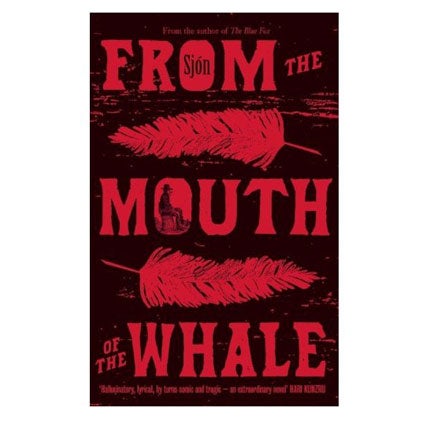From The Mouth Of The Whale
Crime and punishment in Iceland

Your support helps us to tell the story
From reproductive rights to climate change to Big Tech, The Independent is on the ground when the story is developing. Whether it's investigating the financials of Elon Musk's pro-Trump PAC or producing our latest documentary, 'The A Word', which shines a light on the American women fighting for reproductive rights, we know how important it is to parse out the facts from the messaging.
At such a critical moment in US history, we need reporters on the ground. Your donation allows us to keep sending journalists to speak to both sides of the story.
The Independent is trusted by Americans across the entire political spectrum. And unlike many other quality news outlets, we choose not to lock Americans out of our reporting and analysis with paywalls. We believe quality journalism should be available to everyone, paid for by those who can afford it.
Your support makes all the difference.Part of the pleasure of reading literary fiction in translation is that it enriches our understanding of other cultures.
In his second book to appear in English, From the Mouth of the Whale, the acclaimed Icelandic novelist and poet Sjón transports the reader to a different world and time. The tale of his supremely odd protagonist, who is based on a historical figure, makes for a terrific read.
In 17th-century Iceland, Jónas Pálmason the Learned, a self-taught naturalist, poet and healer, is sentenced to internal exile, on charges of sorcery. Astrology is still used in medicine and talismans are believed to promote healing. It is also the aftermath of the Lutheran Reformation, a transition from Catholicism marred by violence. As Jónas sees out his punishment on a deserted island, he ruminates on his misfortunes. He recalls his childhood, witnessing the secret folk-worship of the Virgin, and, later, describes his downfall as a "Schoolmaster of Necromancy". Sjón's prose is deliberately untamed, reflecting the wanderings of Jónas's mind, a stream of consciousness that is lyrical and hallucinatory.
There is humour in Jónas's recollections, such as his reverence for the dead who "generally possess more fortitude than the living, as is clear by the way they still lie in their grave while man scurries around like a frightened field mouse". In a light-hearted touch, Sjón takes on a minor role as a sailor who rescues Jónas. The clue is in his appearance: bespectacled and clad in a grey-brown homespun coat and hat, his middle finger "sported a silver ring engraved with an inscription".
Subtly, Sjón draws out the contemporary resonances. Jónas's condemnation of the massacre of Basque whalers (based on a real event in 1615) results in his politically-motivated persecution and his banishment for compiling a book chimes with the experience of oppressed writers today: "I felt the heat of the animosity they bear towards me, the vindictive nature that drives a man to destroy the neighbour in a fire as if he were a banned book... For what is the difference? Every book is imbued with the human spirit."
This is an extraordinarily accomplished novel that challenges and informs the reader in equal measure. Victoria Cribb's superb translation conveys the intricacies of Sjón's language, Jonas's strange turns of phrase, and the novel's meandering narrative.
Join our commenting forum
Join thought-provoking conversations, follow other Independent readers and see their replies
Comments